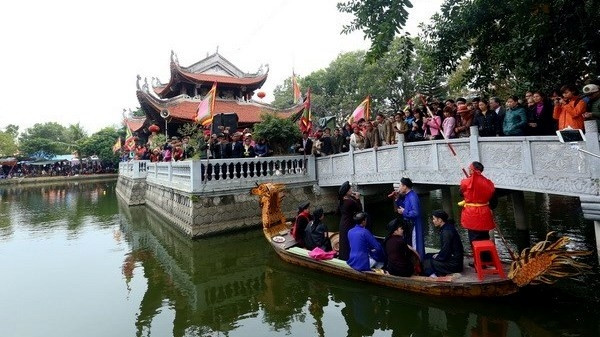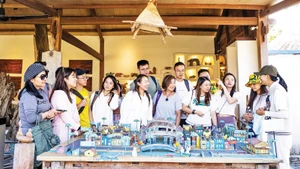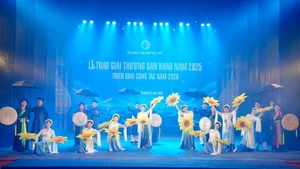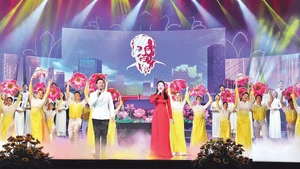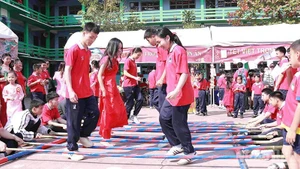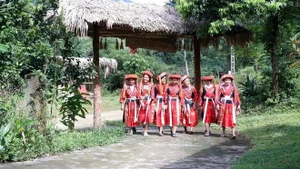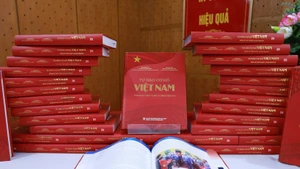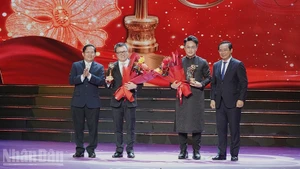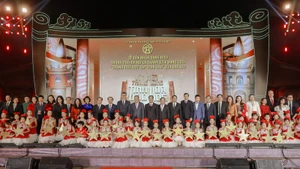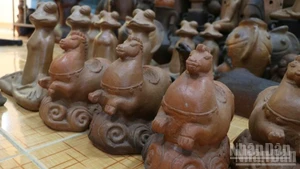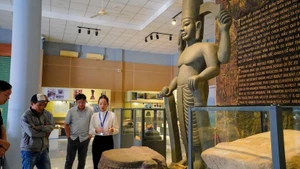Quan Ho folk songs are performed as alternating verses between two women from one village who sing in harmony, and two men from another village who respond with similar melodies, but with different lyrics. The women traditionally wear distinctive large round hats and scarves; the men’s costumes include turbans, umbrellas and tunics. There are more than 400 song lyrics, sung with 213 different melody variations, express people’s emotional states of longing and sadness upon separation, and the happiness of lovers when meeting each other, but custom forbids marrying a singing partner.
Quan Ho was regarded as a cultural activity at which people in Bac Ninh and some other areas nearby gathered, shared their passions, with their fascinating voices. They “played” Quan Ho, not “performed” it, with the main purpose to satisfy their demand to meet and make friends with other people who have same hobbies, and exchange their love on traditional art in a large community.
Quan Ho singing is common at rituals, festivals, competitions and informal gatherings, where guests will perform a variety of verses for their hosts before singing farewell.
Quan Ho songs express the spirit, philosophy and local identity of the communities in this region, and help forge social bonds within and between villages that share a cherished cultural practice.
Local artisans said singing folk songs on the full-moon night depicts the love for Quan Ho, and the eagerness to promote folk songs to a wider audience.
In recent years, Bac Ninh has invested in renovation and construction of cultural institutions. Of which, the key project is Bac Ninh Quan Ho folk theatre. The VND90 billion project covers an area of 1.9 ha. The theatre has four storeys and a unique architectural design featuring the images of a house, dragon boat, a strip of peach silk and a large round hat, which are symbols of Quan Ho singing, representing the cultural features of Bac Ninh - Kinh Bac.
Le Manh Thang, Director of Quan Ho Folk Theatre, said previously, even without the current facilities, many artists had tried their best to study, popularise and promote their folk songs to the community.
With support provided by the authorities at all levels, the artists have been enthusiastic and motivated in conserving as well as staging new programmes to introduce Quan Ho to tourists, he said.
In implementing its commitment to UNESCO, throughout the years, Bac Ninh has called for efforts made at all levels, branches and people's communities, in jointly implementing the project "Preserving and promoting the value of intangible cultural heritage, Bac Ninh Quan Ho folk songs and Ca tru in 2013-2020”.
In particular, Bac Ninh is the leading province in developing mechanisms and policies to honour and reward artisans in the field of intangible cultural heritage, according to Resolution No. 213, 2015 of the provincial People's Council. This is a move to nurture passion, enthusiasm, dedication of talents to preserve and promote the cultural heritage values of the nation.
With the attention and support of the local government, Quan Ho folk songs have increasingly gained the applause of a broader audience. This has affirmed the strong and persistent vitality of a unique and quintessential art form of a land rich in historical, cultural and revolutionary traditions.
